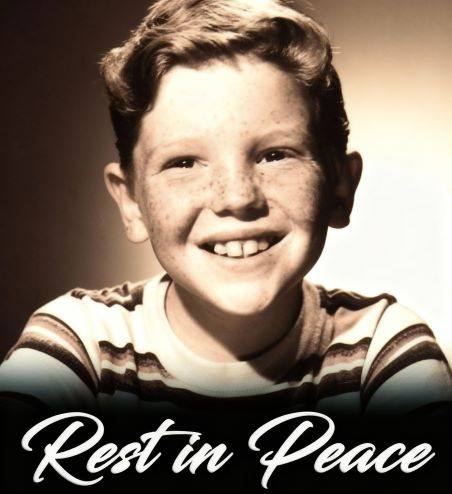The Comparison That Echoed Through a Crime Scene
WASHINGTON, D.C. — Political tensions in the United States reached a new boiling point this week as Texas Congresswoman Jasmine Crockett (D) defended her controversial comparison of former President Donald Trump to Adolf Hitler. Her remarks, delivered on the nationally syndicated radio show The Breakfast Club, landed just two days after the shocking assassination of conservative commentator Charlie Kirk at a Utah campus event.
The timing of her statements has intensified the national debate about rhetoric, responsibility, and the dangerous escalation of political hostility. Critics accuse leaders of fueling division with fiery words, while defenders argue that blunt comparisons are necessary to warn the public about real dangers.
Crockett Doubles Down
During her radio appearance, Crockett made clear that she had no intention of backing away from her earlier remarks. Instead, she insisted that Trump’s behavior on the campaign trail and in office justified her comparison.
“We’ve got to talk about what it really means when someone’s running for president — or for any high office — and they go around talking about beating people up,” Crockett said. “When you say things like, ‘I could shoot someone in the middle of the street and still win,’ that’s dangerous. That’s not just politics. That’s inciting a culture of violence.”
The congresswoman emphasized that her words were not a call to harm anyone, but rather a warning about the dangers of normalizing aggressive rhetoric. “Calling someone a wannabe dictator isn’t the same as telling people to hurt someone,” she added. “But when you’re literally telling crowds at rallies to beat people up, that’s a problem we need to address.”
The Shadow of Assassination
Crockett’s comments came at a particularly sensitive moment. Just two days earlier, 31-year-old Charlie Kirk — founder of the conservative youth organization Turning Point USA — had been shot and killed during a speaking engagement at Utah Valley University. The assassination stunned supporters and opponents alike, sparking vigils, political statements, and renewed questions about the security of public figures.
Police later identified the suspect as Tyler Robinson, a 22-year-old man described by acquaintances as politically left-leaning and increasingly radical in recent years. His arrest came after surveillance footage showed him arriving at the university in a gray Dodge Challenger. Authorities confirmed that his father, recognizing the images, helped facilitate Robinson’s peaceful surrender with the guidance of a family pastor.
The crime scene itself added to the chilling atmosphere. Investigators reported that shell casings near the site bore engravings referencing video game culture and far-left slogans, including inputs from the game Helldivers 2 used to trigger a virtual 500-kilogram airstrike, and the phrase “Bella Ciao,” an anti-fascist anthem.
Mixed Messages on Rhetoric
The combination of Crockett’s remarks and Kirk’s murder has reignited debate over whether political rhetoric is contributing to violence. Critics point out that Democrats, while often urging a lowering of the national temperature, have themselves used combative language in the past.
For example, during the 2016 campaign, then–Vice President Joe Biden said he wished he could take Trump “behind the gym,” a statement interpreted by many as a veiled threat of physical violence. Other lawmakers have referred to Trump and his supporters as threats to democracy, sparking accusations of dehumanization from the right.
Political psychologist Dr. Angela Pierce cautioned that even metaphorical statements can carry risks. “When leaders use dehumanizing or violent metaphors, they risk legitimizing violent responses in the minds of unstable followers,” she explained. “It’s not about blame, but about responsibility. Words can become catalysts for action.”
A Friend’s Disturbing Memories
In the aftermath of Robinson’s arrest, new details emerged about his background. A former high school friend described him as the only left-leaning member of an otherwise conservative household. “He was pretty left on everything,” the friend said. “He would rant about politics a lot — especially online.”
The friend recalled that Robinson’s political views hardened during college, coinciding with his heavy engagement in online gaming and digital subcultures. The discovery of engraved bullet casings at the crime scene — combining gaming symbols with political slogans — has led investigators to believe Robinson may have sought to merge his digital obsessions with his ideological mission.
Trump Responds
Former President Donald Trump confirmed Robinson’s arrest during an early morning appearance on Fox & Friends. “I think, with a high degree of certainty, we have him,” Trump said. “Someone very close to him turned him in.”
Trump went on to condemn the attack in stark terms, calling Kirk “the finest person” and expressing his hope that Robinson would face the death penalty if convicted. “What he did — Charlie Kirk was the finest person and he didn’t deserve this,” Trump said.
His comments further fueled the political storm, drawing praise from conservatives demanding justice and criticism from opponents who accused Trump of inflaming tensions even in the wake of tragedy.
The Broader Implications
Kirk’s assassination and Crockett’s remarks have together raised urgent questions about America’s political culture. The rhetoric of labeling opponents as “dictators,” “fascists,” or even “Hitler” has become increasingly common, particularly during election cycles. While such comparisons are often dismissed as hyperbolic, experts warn that in a polarized environment, they can take on dangerous weight.
“When people are told that their opponents are existential threats — Nazis, traitors, enemies of democracy — it’s not surprising that some unstable individuals may feel violence is justified,” Dr. Pierce explained. “This doesn’t excuse their actions, but it highlights the responsibility leaders have to consider how their words will be received.”
A Nation on Edge
As vigils for Kirk continue across the country, Americans are grappling with the implications of the tragedy. To his supporters, Kirk’s assassination represents not just the loss of a charismatic leader, but an attack on free speech and the conservative movement itself. To others, it is another reminder of the dangers posed by unchecked radicalization in a hyper-partisan environment.
Meanwhile, the political fallout for Crockett remains uncertain. While her supporters argue she is courageously speaking the truth about Trump’s rhetoric, her critics accuse her of recklessness at a moment when the country is already on edge. Whether her words will inflame tensions further — or spark a deeper conversation about the responsibility of political leaders — remains to be seen.
Conclusion
The murder of Charlie Kirk and the subsequent defense of controversial rhetoric by Rep. Jasmine Crockett illustrate the perilous state of American political discourse. In a nation already deeply divided, comparisons to dictators and slogans engraved on bullets underscore how the line between words and violence is becoming increasingly blurred.
As investigators pursue justice for Kirk and as lawmakers debate the limits of political speech, one fact remains undeniable: in today’s climate, words do not merely echo in debates and campaign rallies. They echo through crime scenes.



